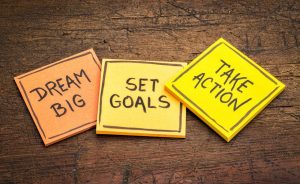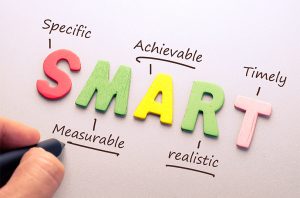It occurred to me this morning as I was working through various social media feeds that there were some folks who were all taking the same actions to work toward different goals. While it’s vital to understand that everyone has different goals, or at least different definitions of what a particular goal is, it’s perhaps more important to understand, and integrate into your planning and process, that your end goal determines what your actions should be. Further, as you evolve through the process of striving toward your goal, your skill sets will change, as will your knowledge base, and if you don’t make adjustments as you go, then eventually you stagnate, lose faith, lose motivation or simply don’t work as efficiently. Let’s take a look at fitness as an example.
Any of my regular readers know that I focus on my personal health and fitness. I pay attention to my weight, my blood pressure, my resting heart rate, what I eat/drink, my sleeping patterns, etc. I journal the information and regularly take a look back at it to see what I can do better or need to change. My goals are set but also acknowledged as adjustable. At the moment, I aim to lose about another 16 pounds. That’s the current goal and I eat / exercise to strive toward that goal. I am doing my best not to lose muscle mass while I burn off the fat my body doesn’t need. That unnecessary fat not only detracts from a healthy and attractive appearance, but it is a major contributor in many diseases / afflictions that can shorten my life and/or impair my quality of life. Ultimately, my goal is to look and feel better and to live the longest, highest quality life I can. To that end, I have a fairly regular food intake and exercise program that combines strength training (to maintain muscle mass) with stretching (to maintain flexibility) and cardiovascular training (to maintain endurance and heart health).
In contrast to that, I have a friend who is a competitive bodybuilder. His  ultimate goal is to gain muscle mass and then increase definition for competitions. To work toward his goal he focuses almost solely on weight lifting for muscle mass increase and his dietary intake fluctuates depending on where in his cycle of competition he is. Sometimes he’s eating upwards of 5,000 calories per day. Other times he eats 1,200 calories for several days and then no calories (or darn close to it) for a few days.
ultimate goal is to gain muscle mass and then increase definition for competitions. To work toward his goal he focuses almost solely on weight lifting for muscle mass increase and his dietary intake fluctuates depending on where in his cycle of competition he is. Sometimes he’s eating upwards of 5,000 calories per day. Other times he eats 1,200 calories for several days and then no calories (or darn close to it) for a few days.
As a final comparison, I have a friend who is a long distance runner. Due to the fact that he burns hundreds (if not thousands) of calories per day running (as much as 20 miles in a day sometimes), he eats pretty much what he wants, does no strength training and stretches focused on his lower body. His goal is purely muscle endurance from the waist down and cardiovascular health to support his longer runs.
Those are examples of three very different ultimate goals. The actions taken to pursue the desired pinnacle of performance in each goal are also vastly different. Now consider what would happen if someone went to my bodybuilding friend and said, “Hey, can you help me train? I need to be in better shape.” Unless the bodybuilder takes the time to ascertain the person’s final goals, he may end up simply training the person for bodybuilding… and the person may simply want to lose a few pounds and not breath as heavy when he’s going up the stairs.
On the other end of that conversation, the guy who is asking for help may not even realize the different actions necessary dependent on the end goal desired. That reality applies to virtually everything in life when you think about it. Education… career… fitness… relationship… If you don’t have a clear picture of your end goal, you can’t effectively work toward it.
So it would seem that one of the most important questions you can ask  yourself is: What is my end goal? Ask yourself that question and get the most basic, unfiltered answer you can.
yourself is: What is my end goal? Ask yourself that question and get the most basic, unfiltered answer you can.
What is your end goal in your education? Have you reached it? Are you pursuing it?
What is your end goal in your career? Have you reached it? Are you pursuing it? If you HAVE reached it, then what’s next?
What is your end goal in fitness? Do you have one? Do you care? Are you pursuing it?
What is your end goal in your relationship (if you’re in one)? Have you attained it? Are you working toward it? Do you understand that no relationship goal, once reached, is complete. If you remain stagnant then you’re doing the relationship harm.
If you’re taking advice from anyone (including me) on how to achieve your goals, you need to double check and be very clear that they are giving you advice on how to pursue your own goals and not theirs. Misunderstandings easily happen and very clear communication is necessary in such conversation. First you have to know your goal; second you need to seek advice from someone who has knowledge of the subject and can offer you guidance; their they need to understand what your end goal is; and fourth – you need to incorporate their guidance into your plan to achieve your goal.
That last part… the fourth step – requires some submission of ego. When my father would offer me advice, if I thought I knew better than he did about something, my ego drove me to disregard, without consideration, his advice. If I kept my ego in check, I could consider his advice, weigh the value of his opinion, and incorporate it into my decision making as appropriate. In the first instance, his advice could hold the greatest value and I don’t use it because my ego is in the way. In the second, I gain the greatest value available from his advice by giving it full consideration, selecting the best parts that fit my plan for my goals and then incorporating it appropriately.
If you look back through this entry though you’ll see one thing is consistent: First you have to know your own goal(s). Do you?


